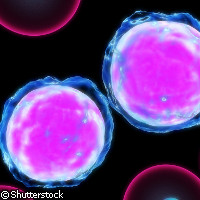European LeukemiaNet takes cancer research to new heights
European researchers are steadfast in their efforts to improve the care of patients suffering from leukaemia. However, an EU-funded team of researchers is raising the bar by integrating the work of leading trial groups, their partner groups, industry and small to medium-sized enterprises (SMEs) across Europe to establish a cooperative network for advancements in leukaemia-related research and healthcare. The ultimate objective of the 'European LeukemiaNet' (ELN) project, which is funded under the EU's Sixth Framework Programme to the tune of EUR 6 million, is the launching of the European Leukaemia Trial Registry. The project was recently presented in Cancerworld magazine. Since the start of 2009, the ELN ('Strengthen and develop scientific and technological excellence in research and therapy of leukaemia (CML, AML, ALL, CLL, MDS, CMPD) by integration of the leading national leukaemia networks and their interdisciplinary partner groups in Europe') partners have succeeded in bringing together national leukaemia study groups consisting of 147 institutions in 28 countries. On the whole, over 1,000 researchers and around 10,000 patients are participating in the study. The ELN consortium has already implemented new treatment guidelines, made substantial progress with standardising monitoring techniques and initiated several clinical trials and registries for certain leukaemias. An annual symposium with impressive participation numbers also got off the ground. ELN is being coordinated by the Mannheim Medical Faculty of the University of Heidelberg in Germany, and Professor Rüdiger Hehlmann is leading the team. The project is modelled on a German Competence Network for acute and chronic leukaemias, which received nearly EUR 12 million in financial support from Germany's Ministry of Research and Education. The objective of the Competence Network was to address the deficiencies found in research and healthcare, such as duplication and fragmentation of clinical trials, and lack of definitions and standards for diagnostics and therapeutic criteria. In an editorial published in the journal Leukemia in 2004, Professor Hehlmann and colleagues wrote that the Competence Network targeted the support of excellence in research and care and sought to 'incorporate insights from gene array research into clinical practice, and to migrate rapidly to molecular classification of leukaemias. The network offers a competitive advantage for participating doctors and scientists from Germany and neighbouring countries.' Thanks to ELN, this advantage will be extended to more countries. The project comprises 16 Work Packages (WPs) targeting the integration of 95 leukaemia trial groups (covering all leukaemia types), their 102 interdisciplinary partner groups (e.g. diagnostics, treatment, guidelines) and industry. Six of the WPs are for clinical trials for disease types: acute lymphoblastic leukaemia (ALL), acute myeloblastic leukaemia (AML), chronic myeloid leukaemia (CML), chronic lymphoblastic leukaemia (CLL), chronic myeloproliferative diseases (CMPDs) and myelodysplastic syndromes (MDSs). The remaining packages cover interdisciplinary topics. ELN has also established a network management centre, and communication and information technology support is available. The ELN project has its roots in existing European support groups, including those for CML, but it has successfully expanded the number of participating countries, said Dr Susanne Saussele, ELN's scientific network manager. 'We have over 20 now for CML, more than double the original number, and the new participants include several from eastern Europe,' noted Dr Saussele, an oncologist at the University of Heidelberg. ELN is making huge strides in the development of a content management system for its website, enabling project details like papers, reports and contacts to be accessible. Project partners are from Austria, Belarus, Belgium, Croatia, Cyprus, the Czech Republic, Denmark, Finland, France, Germany, Greece, Hungary, Ireland, Israel, Italy, Latvia, Lithuania, Luxembourg, the Netherlands, Norway, Poland, Portugal, Romania, Russia, Serbia, Slovakia, Slovenia, Spain, Sweden, Switzerland, Turkey, the UK and Ukraine.
Countries
Germany



